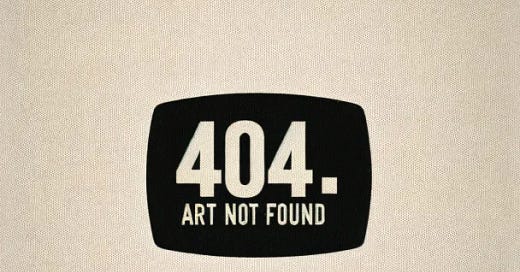

Discover more from Soaring Twenties
This is it. This is genuine cultural commentary at its finest. This is what would be in the culture and technology sections of renowned newspapers were those publications to re-devote themselves to excellent. But instead you find it here at the STSC ‘stack.
And if you want more you can find more such contemplations over at
‘s page.Enjoy.
TJB.
We are faced with a problem we haven’t ever so much before: to filter out information that has become excessive in supply. People used to have to exert more efforts in order to obtain information, because the way of making information travel was much less efficient. This inefficiency may have had plenty of disadvantages, but it did exert a selective pressure on the contents that were shared. A letter in 1940 could easily summarize the scope of a couple of months, devote itself to notable events, and significant residual sentiments. The messages needed to be confined, therefore considered, and the information condensed. Prioritization and filtration happened before the act of communication.
Now we can share much greater volumes of messages than that letter, instantly, and across the globe. And we don’t need to select chiefly the most significant information over a period of months: we can share whatever happens right now. The technology of our time has made the travel of information a background matter, a self-evident process. Because, in the act of communication, we encounter no more friction. It is now inexpensive, convenient, and efficient to share information. Although this may have many advantages, our solution has led us to a new problem. It has greatly removed the selective pressures that were once inherent in the act of communicating across distances—those conferred by the limitations, capacities, and constraints of the medium.
As a consequence, we have become indiscriminate. We share everything. We have a direct line into the pool of information that reaches everywhere simultaneously. We are incessantly documenting, sharing, listening, interpreting—producing and consuming. Everything far away has become within reach, everything close-by now stretches everywhere. We have turned information from a necessity into a triviality. We are indiscriminate about our production and consumption of information, because we can have so much of it!
This has changed our attitude to the use of information. It is no longer about what is important, but instead about what is novel. The medium of its delivery has been morphed into a stimulant, a drug. We have created an environment of informational excess! The circulation of useless information is not merely included, but dominant, and cluttering its channels. The biggest problem is no longer the publication of information, but how to cut through the weeds. Now that the medium is virtually limitless, we have become the filter. Our interactions with the information river are now the decisive measure that selects the information to retain. Circulation is the primary objective. Prioritization and filtration now happen after the act of communication.
We are so at the mercy of this development (aren’t we always with the development of new technologies?) that we do not ask ourselves what this is good for. Or: what kind of information and communication our new mediums are suitable to contain, and, by extension, how we can best make use of them. An instantaneous and incessant stream that transports isolated fragments of information lends itself to be used for information that is relevant for very short instances of time, and which does not induce any significant damages (dramatic changes) in prolonged exposure.
This also implies the inverse: our instantaneous mediums are naturally less equipped for aggregated forms of information—think: books. It is a stream, and a stream needs to flow. Densely packed, sorted, and ordered forms of information take too long to get to their point, because their point is not something necessarily immediate. It confers lasting and significant knowledge, and will be therefore less likely to change in the next few moments. It is naturally more static, renewing itself only over longer breadths of time. It provokes less engagement. Engagement? Engagement—immediate involvement.
Engagement namely comes much more reliably from novelty. As a result, within the environment of the stream, aggregated information will be washed out by short-lived information. Not only because aggregated information takes longer to produce, but because the stream will award a precedence to fragmented smaller bits of novel information, which can be responded to with immediacy, and without requiring much prior knowledge or extensive contemplation.
Aggregated information may be delivered through the channels of instantaneous access (in fact it greatly benefits from that fact), but it is not conferred by them. Condensed forms of information (knowledge) are more suitable to be contained in mediums that are less subject to change. This work, for example, regardless of how it has reached you, unpacks itself through long-form writing. It is, ideally, neither produced nor consumed on a whim. But that is precisely the opposite with novel information.
Instantaneous media pressure to produce and consume impulsively, because it must stimulate flow. Engagement. If the information that is shared assumes a great deal of prior knowledge, it would not prompt enough responses. If it takes careful analysis to weigh in, it would not provoke impulsive responses. If it takes a long time to produce, it would age too fast and be crowded out by other more frequently renewing information. It would not create traction. In the environment of instantaneous media, we adapt all information to take on the form of news, because the mode of communication is structured to transport it as such.
We may think the enhanced accessibility of information so far has provided us only advantages. Admittedly, we have made information more convenient. But was convenient information something we were lacking, to the degree that we’re making use of it? We are blind to the underbelly of embedding instantaneous information infrastructure more intricately into our lives.
It should not be considered so self-evident that information around us is deserving of our attention simply by virtue of being accessible. That is akin to eating as long as there is food around, regardless of craving. It is a kind of dumb hunger: an urge for the effect derived from the activity of consumption itself, rather than a purposeful satisfaction of a need. I can fill a thousand newsfeeds with detailed denotations of what goes on in my neighbor's house at eight in the morning on a Sunday, but that does not mean it is useful information. I would not stand to benefit much from devoting myself to its absorption. I would not be a changed man afterwards. I would live the same. The only difference it makes is that I would have lost time.
The supply of useful information has remained largely unaffected. The flood gates have opened, however, to oceans of novelty. And by occupying ourselves so much with novelty, we have displaced other—(useful)—forms of information. We don’t know how to handle this, and that is the struggle of our time. We spend so much time on deciphering irrelevant information that we have become habitual sifters. We trickle down little grains of information through a mesh and finally may encounter a couple of little specks of useful goods—if that. Never having asked ourselves if it contained what we were looking for. We have become information gamblers.
But as instantaneous media have become our primary mode of communication, we have become a society obsessed with novelty, a society that regards information as a means of stimulation. Every drop we touch is announced, every insignificant pebble we lift up, after the endless aim of finding something that is unlikely to ever be there. Because it is action born of circumstance, and a spasm of habit. It is without a goal, premise, or purpose. We consume because it is so easy to do, and then keep doing it because we are so used to consumption.
Information consumption can now be considered a purely recreational activity. We reach for screens instead of bottles, but the hangover is much more insidious. The pleasure is gone as soon as its stimulation is no longer felt. Our residual dissatisfaction, our emptiness, is a result of having invested so much effort only to be left with nothing. We have not retained anything of lasting value. We have not taken anything with us. We have not procured any information that bears significance to our wants, needs, aspirations—our life. The more we orient ourselves to indiscriminate use of information, the less use we can expect to have for it.
We are making ourselves serve the medium rather than making it serve us. We have cultivated a way of use that is inimical, destructive. And the unprecedented lowering of the threshold of accessibility to information can be an empowering ally. It is inimical because we are still acting as if information is scarce—it is not: it is abundant. More abundant than ever. Yet, we seem to have great difficulty in adapting to this circumstance; in forgetting about quantity of information and orienting ourselves instead towards meaning.
Currently we are enthralled by the phenomenon of rapid and grand circulation, but wholly negligent of how to employ it for retention. We want to know about every drop that’s in the river, but rarely ask ourselves what in the river we need to know about. As a result, we have become information junkies. A typical use pattern of information (and its devices) today is awfully similar to the abuse of other substances. Except that it is taking place en masse. And, because it does, it does not stand out. Ordinarily, addictions are considered a condition of illness; an anomaly rather than the standard. But our greatest illness, our most prevalent addiction, is normalized.
Our time is supposed to be the “information age,” but we have made information the most disorienting part of our lives. Apart from the befitting new technologies that can help reorganize large volumes of information for us (artificial intelligence), the new conditions of our world should prompt us to become more media fluent. It should make us wiser in our use of information. It must—because the change is irreversible. But this can only occur if we adapt to the situation. To the circumstance of information abundance. Which means we have to disregard a lot more of it than we are used to doing. Withdraw from our addiction with content-intoxication. Make more meaningful use of information, sparingly, intentionally. Not more than we need, not without aim. In other words, we must use a lot less.



















Excellent. Gatekeepers are inevitable.
Thank you for such a nice piece. I'm reading the book (yes, a book!) 4,000 Weeks by Oliver Burkeman (sp?). He has a chapter entitled "The Watermelon Problem" in which he describes how, for about 44 minutes in 2016 or so, over 3 million people watched two guys put rubber bands around a watermelon until...yep, you've got the image right. Not that it's not a respectable way to spend one's time if one truly wants to, but how many folks really actively decided that's where they wanted those minutes to go? I've got lots of my own watermelons, and mostly use them to avoid being present with uncomfortable feelings like facing the fact that I'm not sure whether I'll disappoint myself in some effort I genuinely care about.
Most importantly, thanks for sharing your thoughts! Wonderful musings, and so relevant :)